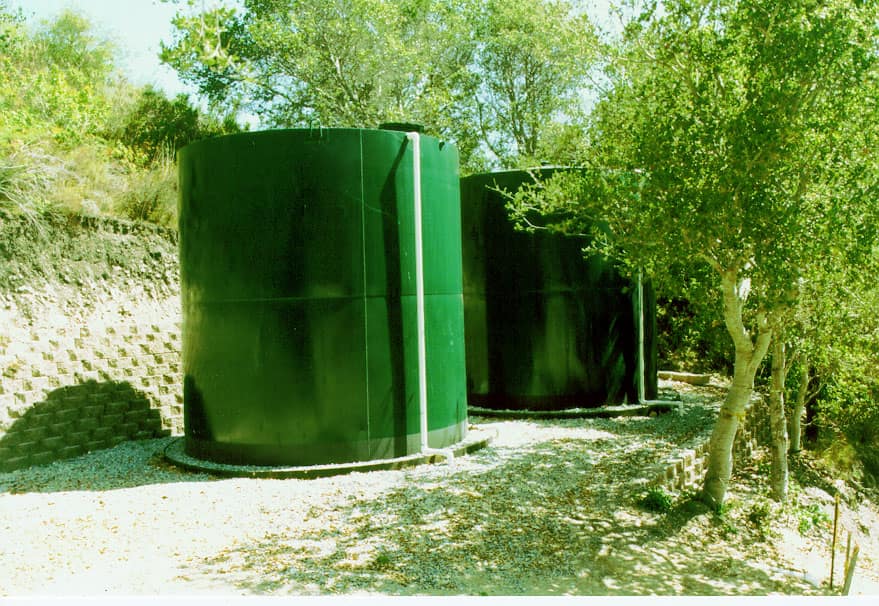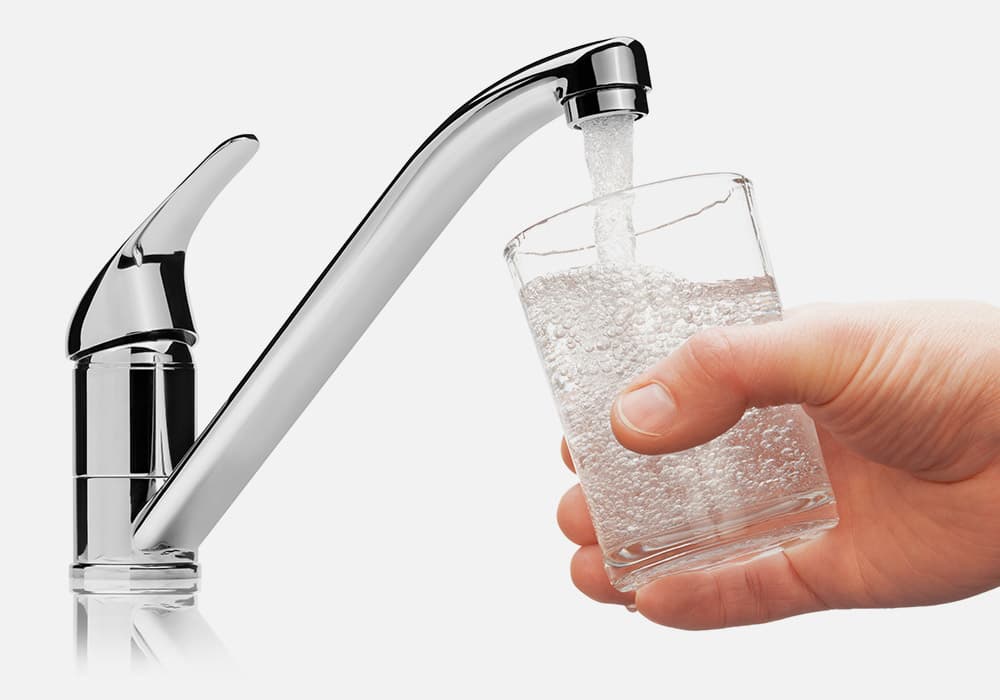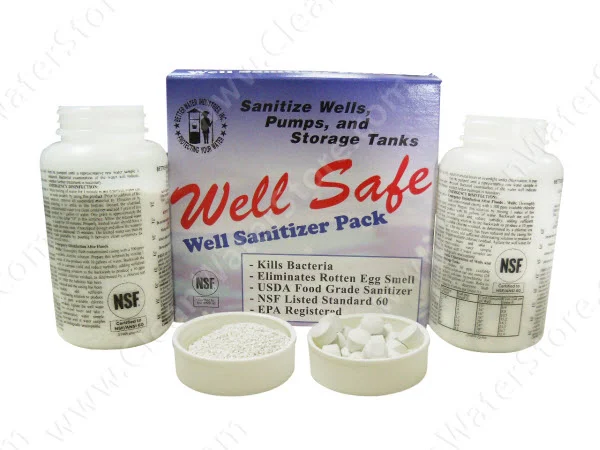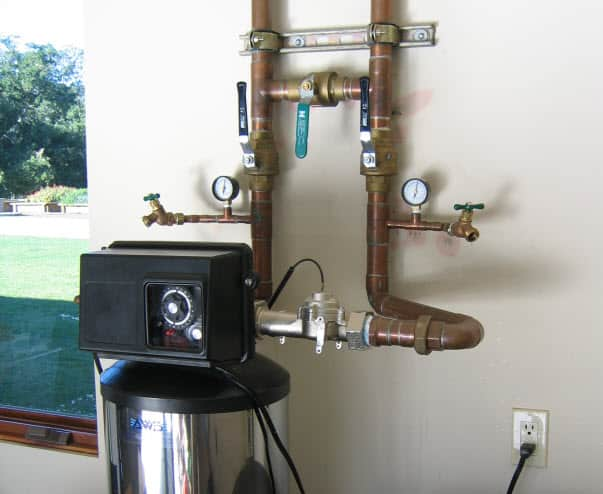Is Smelly Hot Water Dangerous?
Should You Be Concerned if You Have Smelly Hot Water in Your Home?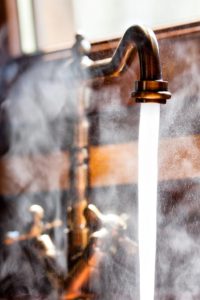
If you are a homeowner with private well water at your residence, you may assume that water directly from the earth will be pure and crystal clear. This isn’t always the case. Often, this “natural” water may smell or taste bad. When investigating smelly water issues, it is important to check both hot and cold water faucets for odors. Learn what to do when smelly hot water becomes a problem in your home.
What Causes Smelly Hot Water?
Before you go straight to the source of your smelly hot water, check around your house to make sure that nothing inside your home is causing the smell. If you’ve determined without a doubt that your water is the culprit, it may stink due to one of the following reasons.
The hot water line can be a source of odors, particularly if bacteria are growing within it or the water heater.
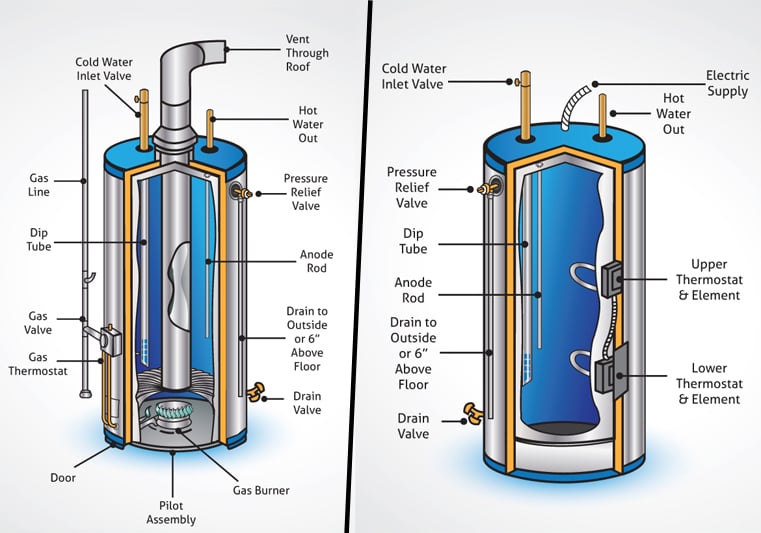
Hydrogen Sulfide and Rotten Egg Smell
You may be familiar with hydrogen sulfide, a form of sulfur that causes a “rotten egg” smell, but you may have never heard of this sewage-like stink linked to hot water in a home. This compound is very common in homes with untreated well water, and if it is not treated adequately, it can pose a danger to human health.
A smelly hot water problem in hot water systems usually originates from a sulfur or iron bacteria buildup. These bacteria can thrive in some water heaters and give off hydrogen sulfide gas that smells like rotten eggs.
Due to the presence of sulfate and bacteria, the water heater tank can create conditions conducive to the production of hydrogen sulfide gas. The anode in the tank helps prevent corrosion while facilitating chemical reactions.
This can happen to your hot water tank for two reasons: The water may have sat unused in the tank for too long, or, in the case of well water, forgoing chlorine treatments can lead to the proliferation of sulfate bacteria.
A Faulty Softener System
In some cases, the magnesium anode rod inside a water softener system can combine with the compounds in the soft water to form hydrogen sulfide gas.
Identifying the Source of the Smell
Identifying the source of the smell in your water is crucial to determining the best course of action to eliminate it. Here are some steps to help you identify the source of the smell:
- Check the Water Heater: If the smell is coming from the hot water, it could be due to bacteria growing in the water heater. Ensure the water heater temperature is set at a safe level, typically around 120°F to 140°F, to prevent bacterial growth. If the temperature is too low, it can create an environment where sulfur bacteria thrive, producing hydrogen sulfide gas.
- Check the Plumbing System: If the smell is coming from the cold water, it could be due to bacteria growing in the plumbing system. Inspect the pipes and fittings for any signs of corrosion or damage, as these can harbor bacteria. Iron bacteria, in particular, can cause unpleasant odors and should be addressed promptly.
- Check the Water Supply: The smell in both hot and cold water could be due to contaminants in the water supply. Contact your local water provider to inquire about any issues with the water supply. They can provide information on water quality and any potential contaminants that might be causing the smell.
By systematically checking these potential sources, you can pinpoint the cause of the smell and take appropriate action to eliminate it.
Water Heater Issues
Water heater issues can cause a range of problems, including smelly water. Here are some common issues that can cause smelly water:
- Bacteria Growth: Bacteria can grow in the water heater, particularly in areas with low water flow. This can cause a range of smells, including a rotten egg smell. Sulfur bacteria are often the culprits, as they produce hydrogen sulfide gas when they break down organic matter in the water.
- Corrosion: Corrosion in the water heater can cause black deposits to form, which can give off a strong smell. These deposits can also affect the water heater's efficiency and lead to further issues down the line. Regular maintenance and inspection can help prevent corrosion and the associated odors.
- Temperature Issues: If the water heater temperature is set too low, bacteria can grow, leading to smelly water. Ensuring the water heater temperature is set correctly can help kill sulfur bacteria and prevent the production of hydrogen sulfide gas. Aim for a temperature setting between 120°F and 140°F to balance safety and effectiveness.
Addressing these common water heater issues can eliminate the source of the smelly water and ensure your hot water remains clean and odor-free.
How Do I Fix Smelly Hot Water?
Fortunately, if the problem is in your water heater, treating it is as easy as installing a small, inexpensive screen filter and a bottle of hydrogen peroxide.
Using a chlorine bleach solution can be an effective method of flushing and disinfecting water heaters, but caution should be exercised, and professional assistance may be required.
The Water Heater Odor Killer Filter is a chemically resistant pre-filter designed to withstand high temperatures and chemical concentrations. As such, it can be a very effective system for purging bacteria and odors from a contaminated water heater.
Simply install the filter on the cold line to the water heater, unscrew the bottom sump, and add 1 pint of 3% hydrogen peroxide (available at any drug store). Then, turn your water back on and run hot water for several minutes before allowing your water heater to sit for about 3 – 4 hours.
Well water can be perfectly safe to drink and use every day if it is treated, but owners often wrongly assume that they do not need to take action because well water is safer than other sources of water.
According to the CDC, well owners are responsible for ensuring that water from their properties is safe to drink. It is important to have your water issues tested, treated, and addressed before they create bigger problems for your family.
How Do I Fix Smelly, Cold Well Water?
If your cold well water smells bad, you have several good options to completely eliminate this odor:
- Install a whole house peroxide injection system
- Install a chlorinator to remove odors and kill the odor-producing bacteria
- Hook up a whole house Sulfur Filter System
Contact Clean Water Store
At the Clean Water Store, we pride ourselves on helping our customers come home to the purest, most reliable water possible. Consider our filtration systems, water treatments, and more. Contact us today with questions. We look forward to helping you solve your smelly hot water problem as quickly as we can!
Sources:
1. https://www.health.state.mn.us/communities/environment/water/wells/waterquality/hydrosulfide.html
2. https://www.osha.gov/hydrogen-sulfide


